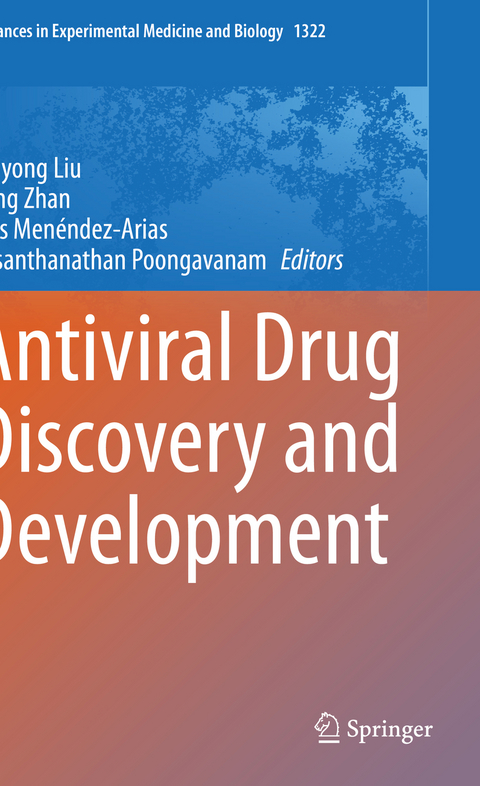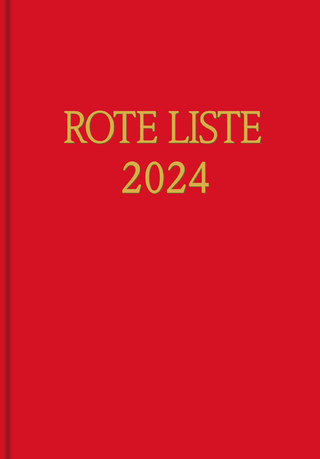
Antiviral Drug Discovery and Development
Springer Verlag, Singapore
978-981-16-0269-6 (ISBN)
The book is distinctive in providing the most recent update in the rapidly evolving field of antiviral therapeutics. Authoritative reviews are written by international scientists well known for their contributions in their topics of research, which makes this book suitable for researchers not only within the antiviral research community but also attractive to a broad audience in the drug discovery field.
This book covers molecular structures and biochemical mechanisms mediating the antiviral effects, while discussing various ligand design strategies, which include traditional medicinal chemistry, computational chemistry, and chemical biology approaches. The book provides a comprehensive review of antiviral drug discovery and development approaches, particularly focusing on current innovations and future trends.
Luis Menéndez-Arias Luis Menéndez-Arias received his Ph.D. in biology from the Complutense University of Madrid and was trained as a postdoctoral fellow at the Frederick Cancer Research and Development Center (Frederick, Maryland, USA). Currently, he is a research professor in the Spanish National Research Council and group leader at the Centro de Biología Molecular “Severo Ochoa” in Madrid. His research is mainly devoted to understanding structure–activity relationships in human immunodeficiency virus type 1 (HIV-1) reverse transcriptase (RT), elucidating mechanisms of HIV resistance to antiretroviral drugs, and understanding HIV replication fitness. Dr. Menéndez-Arias has co-authored more than 120 peer-reviewed papers and is a member of the editorial boards of Antimicrobial Agents and Chemotherapy, Antiviral Research, Antiviral Therapy, Journal of Biological Chemistry, PLoS One, Virus Research, and Viruses. Xinyong Liu Xinyong Liu received his B.S. and M.S. degrees from the School of Pharmaceutical Sciences, Shandong University. Then, he worked at the Instituto de Quimica Medica (CSIC) in Madrid, Spain, as a senior visiting scholar. Dr. Liu obtained his Ph.D. from Shandong University. He is currently a full professor at the Institute of Medicinal Chemistry, Shandong University. His research interests include rational drug design, synthesis, and antiviral evaluation of a variety of molecules that interact with specific enzymes and receptors in the viral life cycle. Other ongoing programs include studies of the molecular modification and structure−activity relationships of some natural products used to treat cardiovascular diseases and drug delivery research using PEGylated small-molecular agents. Peng Zhan Peng Zhan obtained his B.S. and M.Sc. degrees and a Ph.D. in medicinal chemistry from Shandong University, China. Then, he joined the research group of Professor Xinyong Liu as a lecturer. Later, he worked as a postdoctoral fellow funded by JSPS (Japan Society for the Promotion of Science) in the Graduate School of Medical Science, Kyoto Prefectural University of Medicine, Japan. Currently, he is a full professor at the Institute of Medicinal Chemistry, Shandong University. His research interests involve the discovery of novel antiviral, anticancer, and neurodegenerative diseases-related agents based on rational drug design and combinatorial chemistry approaches. Vasanthanathan Poongavanam Vasanthanathan Poongavanam obtained his Ph.D. in medicinal chemistry from the University of Copenhagen, Denmark, working on computational modeling of cytochrome P450-ligand interactions. He conducted his postdoctoral research at the University of Vienna (Austria), University of Southern Denmark (Denmark), and Uppsala University (Sweden). Currently, he is a researcher (Forskare) at Uppsala University (Sweden). His current research activities involve the basic understanding of biomolecular recognition using computer simulations, with emphasis on the prediction of cellular permeability, ligand-binding, molecular properties of compounds in bRo5 space, cheminformatics, and computer-assisted drug design.
1 Antiviral Drugs Against Herpesviruses.- 2 An Update on Antiretroviral Therapy.- 3 Structural Insights to Human Immunodeficiency Virus (HIV-1) Targets and their Inhibition.- 4 LEDGINs, Inhibitors of the Interaction between HIV-1 Integrase and LEDGF/p75, are Potent Antivirals with a Potential to Cure HIV Infection.- 5 Moving Fast Towards Hepatitis B Virus Elimination.- 6 Discovery and Development of Antiviral Therapies for Chronic Hepatitis C Virus Infection.- 7 Phytoconstituents as Lead Compounds for Anti-dengue Drug Discovery.- 8 Anti-influenza Drug Discovery and Development: Targeting the Virus and its Host by all.- 9 Search, Identification and Design of Effective Antiviral Drugs against Pandemic Human Coronaviruses.- 10 Peptide Based Antiviral Drugs.- 11 Covalent Antiviral Agents.- 12 Safe-in-Man Broad Spectrum Antiviral Agents.- 13 Exploiting Ubiquitin ligases for Induced Target Degradation as an Antiviral Strategy.
| Erscheinungsdatum | 21.07.2022 |
|---|---|
| Reihe/Serie | Advances in Experimental Medicine and Biology ; 1322 |
| Zusatzinfo | 64 Illustrations, color; 78 Illustrations, black and white |
| Verlagsort | Singapore |
| Sprache | englisch |
| Maße | 178 x 254 mm |
| Themenwelt | Medizin / Pharmazie ► Medizinische Fachgebiete ► Pharmakologie / Pharmakotherapie |
| Medizin / Pharmazie ► Pflege | |
| Medizin / Pharmazie ► Pharmazie ► PTA / PKA | |
| Technik ► Umwelttechnik / Biotechnologie | |
| Schlagworte | Antiviral drugs • Antiviral Therapy • drug design • Enzyme inhibitors • Viral infections |
| ISBN-10 | 981-16-0269-7 / 9811602697 |
| ISBN-13 | 978-981-16-0269-6 / 9789811602696 |
| Zustand | Neuware |
| Informationen gemäß Produktsicherheitsverordnung (GPSR) | |
| Haben Sie eine Frage zum Produkt? |
aus dem Bereich


